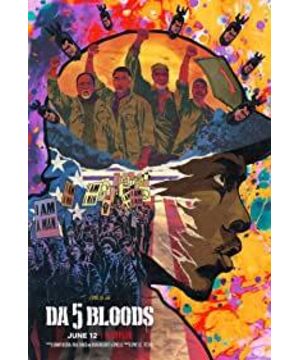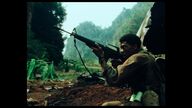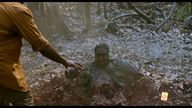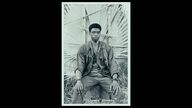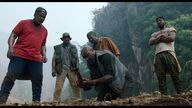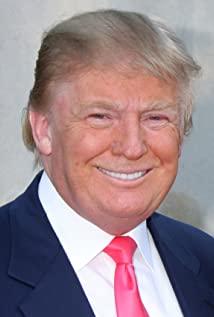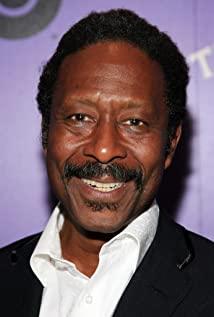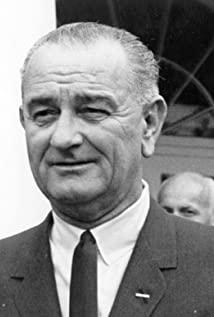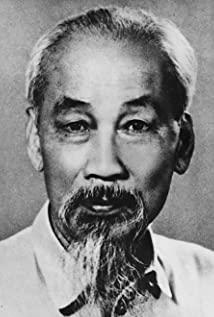In the action-adventure story "Da 5 Bloods" (Da 5 Bloods, 2020), Spike Lee looks back at the legacy of the Vietnam War and talks about mines, snakes and buried treasure. In the following content, he talks with Christina Newland about the experience of black American soldiers in this conflict and his determination to humanize the traditional demon in Hollywood movies, North Vietnam.
In Spike Lee’s latest war masterpiece-"The Bloodsworn Five", a group of black Vietnam War soldiers return to today’s Vietnam, looking for their former commander Norman (played by Chadwick Bosman) ) Of the bones. When they ventured in the jungle together, the danger remained, and their trembling war experience shuttled in flashbacks. These clips are all shown in the form of the ratio of the TV screen at that time. This kind of treatment was very appropriate for the first war that was broadcast on television in history. This film, in the rotation between the scarred friendship and the scarred real world in the late 1960s, frankly uses the death of young blacks to connect the past and present of radicalism together.
Spike Lee had collaborated with Netflix on two adaptations of the 1986 old work "She's Gotta Have It" (She's Gotta Have It). "Bloodfighting Five" was funded by Netflix, and part of the scenes were filmed in Vietnam and Thailand. Lee used the huge funds of streaming media giants to produce a tearful adventure story aimed at documenting the African American war. Topics range from the peace movement to the draft anti-discrimination law, to how African-Americans are among the frontline soldiers, which disproportionately constitute a group larger than other ethnic groups of Americans. The beginning of the movie is a fragment of Ho Chi Minh City. The shooting of the demonstrators at Kent State University and Muhammad Ali's fierce refusal of the war-they constitute a revelation of the historical background of this era and are also provided by Lee throughout the film thing. Whether it is a reminder to the forgotten black wartime hero Milton Olive (Milton Olive) or a joke-like commentary on "Going back to win the Vietnam War" in the movie "First Blood" (1982), this The film is divergent, providing a slightly cunning commentary for this series of events.
Li's desire to re-emphasize the human nature of the North Vietnamese is also worth noting — which is in stark contrast with the descriptions of this group in other movies on this theme — reminding us of the pain that this small country has suffered. This is shown in a particularly pungent scene. A Vietnamese trying to sell some poultry to the character played by Lindo unexpectedly led to an outburst of anger that revealed decades of turmoil between the two sides.
Of course, this does not deny "Blood Oath Five" as the core of an action-adventure film. Although the film covers mercenaries, deminers, snakes, mines, and treasures lost during the war, its pace is not always slow. When greed, tension and old wounds began to approach this group of friends, Lee made every effort to reveal the impact of the Vietnam War on the psychological transformation of American blacks; and how the domestic response to this war is still visible to us today. Radicalism lays the foundation.
Christina Newland (CN): When the Vietnam War was the most intense, you were still a teenager. What are your memories of that time? What is the most memorable one?
Spike Lee (SL): Thankfully, I was born in 1957. Even in 55 and 54 years, the person on the battlefield may be me. I always tell people around me: when you are born, you are born. I grew up in a family that is very sensitive to the social environment. I am the eldest of five children. My parents keep letting us know what is happening in this world. Growing up in New York, we can see protests, see demonstrations, see Nixon and Johnson on the news, and see how they deceive the American people time and time again.
CN: What made you want to make a movie about this era?
SL: After graduating from Morehouse College (a college in Atlanta, Georgia) in 1979, I received a scholarship from Columbia Pictures. This was when I graduated from Morehouse College and went to New York in the fall. The thing between college film graduate students. I was one of the first audiences to participate in the preview of "Apocalypse Now" (Apocalypse Now, 1979). It was a Friday and I took a day off. I told Coppola too many times about this story, but I was there. At twelve noon, a screening of "Apocalypse Now" at the Cinerama Dome on Sunset Boulevard, Walter Murch's ingenious sound design made me look at the helicopter overhead and think, "Where is this sound? Coming?"
I said this to lead to the next point, that is, shooting this film made me realize that there is a Vietnamese film heritage. (Co-writer of "Blood Five") Kevin Willmott (Kevin Willmott) and I accepted the script written by Danny Bilson and Paul Demeo , They were selected by the producer Lloyd Levin and handed them to Oliver Stone. But now everything is different. At that time, the protagonist was not a black soldier.
I grew up watching war movies-this is one of my favorite genres, especially movies about World War II. I also made a war movie before, "Miracle at St. Anna" (Miracle at St. Anna, 2008), a story of a black soldier who fought Mussolini's fascism and Hitler's Nazis in Italy. I hope I can make a movie about the Civil War one day.
This is the reason for everything. I'm a movie fan, and my mother took me to the movies when I was still young. That's where the seeds were planted, but I didn't know that I would become a filmmaker in the future.
CN: There are many places in the film that pay tribute to "Apocalypse Now"-such as the use of Wagner's Ride of the Valkyries.
SL: I have many brothers, many neighbors, for example, Martin Scorsese is next door, and Francis Ford Coppola is my brother. The nightclub in "Blood Five" is a real one. The nightclub called "Apocalypse Now" is in Saigon. This is not a set-up, the movie was shot in Thailand and Vietnam. I knew the club before shooting and said, "We have to shoot there, we have to take a shot there."
And the most famous scene in movie history, the helicopter raid, Robert Duvall and the performance of "The Ride of the Valkyrie". So this is a hat-off tribute to my brother Coppola: I love him, I love him, I love him. But let me ask you a question: When you saw the boat in "Blood-sworn Five" with that piece of music, did you laugh?
CN: I have. Especially when the over-the-shoulder shot of the river appeared.
SL: This is also a kind of humor. But again, it is an homage to Coppola, a kind of tribute.
CN: The Vietnam War era—American filmmaking during the Nixon regime—was a fruitful time, not only politically, but also culturally. The opening footage of "Blood-sworn Five" skimmed many things that belonged to that era. How did you decide what to keep in the movies of that era?
SL: If you often watch my movies, you will know that I pay a lot of attention to the design of the subtitles for the opening cast of the movie. There are many audiences who are going to watch this movie, probably all born in the post-Vietnam War era, so they are not familiar with these historical figures. So I want to join the great Marvin Gaye's album What Happened? "(What's Going On, 1971). The creation of this album comes from the Vietnam War. Marvin Gay’s brother has traveled three times, and often writes to Marvin at his home in Detroit, describing the war on the front line. Those letters did give Marvin the urge to make one of the best albums of all time. So, when Kevin and I decided to rewrite the script, I knew I was going to use those songs.
CN: In the version you saw, Marvin Gay’s voice is particularly divorced from music. I have never heard anything similar.
SL: Oh, singing without a cappella? Yes, it is very natural. Marvin is talking about war, he is talking about equality, about love, about black warriors-"Inner City Blues" (Inner City Blues) is a song about black warriors returning from Vietnam, they can’t find jobs, or Addicted to drugs, without an employer, is called a baby killer. I hope people understand one thing. At the most intense stage of the Vietnam War, African-Americans accounted for one-tenth of the entire American population, but they made up one-third of the Vietnam War frontline forces. We black people were sent directly to the front lines.
We have always had this idea that blacks have been sent to the battlefield to fight for this country before they even thought about fighting for their rights. Because of this, I have many historical comments that I want to express, such as what Chadwick Boseman said to the group of five: "Did you know that the first person to die in the American War was a black person? His name is Crispus Attucks. He died in the Boston Massacre." And now the president-"Agent Orange"-accuses African Americans of not being patriotic? It is not his turn to accuse anyone for not being patriotic, because not everyone has a doctor who has issued a fake bone spur certificate, so there is no need to go to the battlefield.
CN: When you mentioned that a character in the movie is a Trump supporter, you put a short video of Trump and called him a "fake bone spur" president. I like it very much.
SL: Of course, the advantage of making this movie now is that we can add a lot of things that only appeared many years after the war. But I still want to use this movie to show—again, I want to pay tribute to Coppola and John Milius (the co-writer of Apocalypse Now)—the horrors of the Vietnam War. Its horror, American soldiers died in this unethical war, and the president of this country recklessly acted recklessly. Americans are still being sold a bunch of false things today. I will use my 3S to describe them: Shenanigans, Skulduggery and Subterfuge.
CN: One thing that left me a deep impression on the movie was that Radio Hanoi (Viet Cong propaganda broadcasting), which is still very radical today, was in order to make the U.S. military retreat and talk about how the U.S. government treats African Americans. Oops. Hanoi Hannah talked about the shooting of Martin Luther King and why it was a mistake to work for the US government. I guess there are still many Americans who are offended by this.
SL: Why were you offended?
CN: Because it equates American internal struggles with foreign enemies.
SL: That's just a statement from her family. We may have changed a little, but most of them are still in the same vocabulary. Hanoi Hannah is a real person. Similarly, there is a woman named Tokyo Rose in Japan who does the same thing. So, the journey is like this: play some rock, Motown music-American soldiers like to listen. Insert other content between songs. Recalling what Hanoi Hannah said, everything she said was right, especially when it came to the black army. Why go to lynch you for a country that will kill you? And if those soldiers want to hear the Beatles or Motown, they have to endure it.
CN: But the oppression of the Vietnamese people can be traced back to the time when the French occupied the Indo-China Peninsula. There are many parallel comparisons in this movie, as if to say that this has a lot in common with the treatment of African Americans. This is very shocking. I think there are still many people who will say, "Gosh, how can they say this?" Because until today, people's views on the Vietnam War are still very biased.
SL: Well, I hope, I hope you are wrong. A long time has passed, and we are in the new century. But I am not trying to demonize the Vietnamese. I can't do that. When you went to Vietnam, they called this "American War" or "French War". This is why the roles played by Mélanie Thierry and Jean Reno are very important. Because France has a profound history in Vietnam, it would be a slack in my work if I made a film about Vietnam without any elements of law.
CN: Does the role of Delroy Lindo (Delroy Lindo) are a Trump supporter and wear a hat of "making America great again", does it make sense?
SL: Actually, whether you believe it or not, there are some African-Americans who really love Trump (laughs). I am not out of nothing. I think this is very dramatic. This is what I keep telling students-I am a professor and art director at the Graduate School of Film at New York University. I especially want to use African Americans as a special example. Not all people of African descent have the same idea. They do not all have the same looks and way of speaking. We are not a single whole. So, I think this is very dramatic, and it can add some tension. On one side, there are four good friends who grew up together, graduated from high school together, and participated in the war together. The boy has become a man. Many people will tell you that there is no closer relationship than a comrade-in-arms. But after the war, everyone scattered. After so many years, they got together again and discovered that their old friend turned out to be a Trump supporter. Surprise! This opens up many possibilities. This is why I took it.
CN: Can you tell me some stories about your regulars in your movie, Lindo's audition? Why is he suitable for this role?
SL: My way of casting roles hasn't changed since I was a graduate student at New York University—trying to find the most suitable person for the role. I have had the honour to work with Dale: the first time in "Kuroshio" (Malcolm X, 1992), and then "Racial Love" (Crooklyn, 1994). So I know his abilities. But I really need to think twice, because this movie can't be an all-star lineup. I need to consider who would be more suitable for the role. I think—and what I hope this movie can express—we have really put in a lot of effort as a group. Everyone knows what they should do, and they work hard to do it. Everyone is doing their best.
We stayed in Vietnam and Thailand for three months. In 2019, the next morning when "BlacKkKlansman" (BlacKkKlansman, 2018) won the Oscar for Best Adapted Screenplay, I boarded a plane to Bangkok. My wife would say that everything is fine-I can't talk about the best film of the same year "Green Book" (Green Book, 2018), never want to! (laugh)
Most of the footage of the film was shot in Chiang Mai (Northern Thailand). In the last two weeks, we went to Saigon, Vietnam, or Ho Chi Minh City (now called it). For me, that was one of the best experiences. When conditions permit, I always go to the film where the story takes place. When filming "The Miracle of Santa Ana", we had a wonderful time in Italy. We shot in Fellini's studio in Cinecittà. We filmed where the Nazi army slaughtered the entire population of the town. If you can really go to the place where the real event happened, you can definitely feel the spirit and atmosphere.
CN: Going back to what you just said, you don’t want to demonize the Vietnamese in the movie. I think this movie is consciously weakening the film like "The Deer Hunter" (The Deer Hunter, 1978), or in other words, part of it. People will feel this way.
SL: I like Robert De Niro very much, I really like him. I have a group of Italian brothers, Scorsese, Coppola, Tetoro, De Niro and Pacino. They are all people I like very much. But what kind of Russian roulette? The Viet Cong absolutely never did that. But I think the actor they chose is great, the boss. When I watched this movie, I was supposed to be in college. After watching such a movie, you can hardly think that those Viet Cong soldiers are also human. But once again, there is no meaning to disrespect my brother Robert De Niro, I love you, and you know I love you. But there is really no document to prove that the Viet Cong soldiers let American prisoners of war play a game of Russian roulette.
CN: You also added subtitles in a Vietnamese dialogue before the shootout. In some Vietnam War movies, this is generally the effect of dealing with indistinguishable enemies using language that we cannot understand. But here, we can understand their conversation: "Oh! They are just talking about daily life."
SL: Let's be honest. All prejudiced eyes, Charlie, and others. The approach will vary with different ideas.
CN: This is inhumane. I'm a bit derailed, but certain American soldiers' actions during the war...
SL: No, you are on track.
CN: It is not far-fetched to imagine this inhuman behavior. Have you seen the 1972 documentary "Winter Soldier" (Winter Soldier)?
SL: No.
CN: That was a war crimes testimony hearing held by several anti-war Vietnam War veterans. It was filmed by the veterans and completed by several documentaries. They invited some veterans to talk about their wartime crimes. This is not an easy movie to watch, and the permitted atrocities during the war are shocking.
SL: I'm going to look for it. During the editing process, we had several research screenings on black Vietnam veterans. We will focus our attention on the National Black Vietnam Veterans Association-New York has many such veterans. This is one of the things that surprises me the most. To listen to the stories of people who have passed middle age and went straight to the front from high school. All wars are difficult for people to tell. These people cry or laugh as they tell. Some people even need to get out of the screening room to sort their minds before coming back to continue. To me this is like a litmus test. I hope you hear clearly what I am about to say: this is not disrespect for you, audiences and critics can write their thoughts. I showed this movie to those who went to war in Vietnam, seventeen or eighteen years old, just graduated, and those kids who are learning to kill. They all gave me a hug and said to me, "Spike, we waited for this movie for too long, too long."
I don't mean to say that this is the first movie featuring African American soldiers in the Vietnam War. There have been screen characters like this—of course, such as my brother Laurence Fishburne ("Apocalypse Now")—but we took it to another level, so I don’t I think there is a feature film focusing on the wartime experience of African American soldiers. There is a very good book called "The Bloods", which is an oral history of the Vietnam War. People should read it.
CN: Did you refer to other movies when making this movie?
SL: I think there is one element that makes this movie unique: ideas. Regarding the great tragedy of the Vietnam War, we also added elements of "The Treasure of the Sierra Madre" (1948). I have always been a supporter of "mix and match", why can things only be done in one way? Therefore, we also plan to put this adventure story into the novel.
I would love to add an element of adventure. I grew up watching movies like "The Bridge on the River Kwai" (1957) and "The Guns of Navarone" (1961) on TV. Therefore, when we took over the script, we wanted to add such golden elements in "Blood Sands". We all know that all people will react to gold, and it will change people. We have had many different elements in the process of making this movie, because we want to make it entertaining, so we always have to add some jokes in it. Another element I want to add is the prologue and epilogue. These two parts were completed by two Americans who were more anti-war than anyone else. They have endured many vicious attacks for this, and they are also called non-American. The preface was completed by Muhammad Ali, and the ending was Martin Luther King. Yes. These two are very important "books", and we have to frame this content.
There are documents to prove that Lyndon Baynes Johnson (the 36th President of the United States) felt betrayed by Luther King. He felt that Luther King was owed to him by the Civil Rights Act of 1964. King's public anti-war was a flashpoint for Linden. Many historians believe that although King made many anti-war efforts throughout his life, he was indeed assassinated after publicly anti-war. Because when he stood up against the war, it was when the giants were making money, such as Dow (Dow, a chemical company that produces napalm and Agent Orange) and all other companies that made a lot of money in the war. It's blocking the way for people and money, and he must go.
There are many such elements in this movie. I want people to search for Crispus Atticus, think Spike is lying? Go search! I want people to search for information! Why is there a Linden poster that says "War Criminals"? Go search Ho Chi Minh.
CN: I'm very curious about Commander Norman's activism and the black history he taught the soldiers-you have extended a "Black Lives Matter" narrative line from him. The same imagery was used for this part of the mention, a mother crying with a picture of her child. What do you think the activists during the Vietnam War can teach us?
SL: Activism is activism, it has nothing to do with the year you were born. There will be struggles, in any region, there will be people, there will be leaders, and the truth will be chosen among power and truth. The task of today's activists is to pass on this legacy. The other thing is that when you come out after watching the movie-you don't want to leave a bunch of stereotypes-but many times young people don't know what happened before. Movies, music, history. So, we put a lot of things in the movie for them to click. This is why this story happened today. This movie is not a simple chronology. It contains flashbacks, but it happens today. So, at the end of the movie, when we "packed" everything, we joined the Black Lives Matter movement like you mentioned.
CN: You mentioned Muhammad Ali earlier. You have been preparing for a project about boxer Joe Louis for a while. Is that still one of your plans?
SL: Yes, I wrote it with Budd Schulberg-novelist and screenwriter of On The Waterfront (1954). Bud and I became very good friends. Bud watched two matches between Joe and Germany's world-class heavyweight opponent Max Schmeling. Franklin Delano Roosevelt (FDR), Eleanor Roosevelt (Eleanor Roosevelt), Sugar Ray Robinson (Sugar Ray Robinson), Hitler, Goebbels, these people will all appear in this movie. I promised that Bud would make this movie before he died. I will keep my promise. The movie is called "Save Us Joe Louis", screenwriter Bud Schulberg and Spike Lee. It can also be a short play series. I don't think that if I make a short series, Bud will be angry with me.
CN: You were originally to be the chairman of the jury of the Cannes Film Festival this year. If you failed to make it, you must be very disappointed. How do you think it will develop?
SL: I think I'm just one of the thousands of people who are disappointed. You know, this is a global plague, which means that the whole world is affected. For me, I miss those young people who will graduate from high school or university this year more than myself. When the next Cannes Film Festival is held, I can still be the chairman of the jury.
CN: At that time, the film industry may also undergo great changes. What do you think of the film industry environment in the post-epidemic era?
SL: There will be many, many experiments. Even at an independent level, people need to feel safe in front of or behind the camera. I feel that unless you do enough experiments, it will be difficult for the production to get insurance. People often talk about BC and AC, that is, before Christ and After Christ. For me, it now means before the Coronavirus (Corona) and after the Coronavirus (Corona)!
View more about Da 5 Bloods reviews


